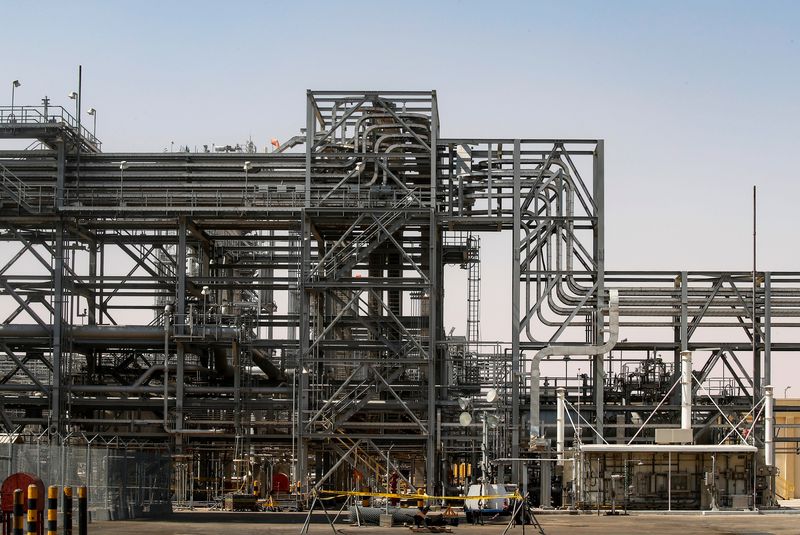By Anant Chandak
BENGALURU (Reuters) - The six-member Gulf Cooperation Council economies will grow at a faster pace in 2024 than last year despite expectations of weak global growth hurting oil demand, according to economists polled by Reuters who see inflation in the region well anchored.
Multiple cuts in oil production - a major driver for growth in Gulf economies - led to a slowdown in the region last year, with Saudi Arabia likely entering a recession as it took the highest cuts.
The challenging global outlook from high interest rates, uncertainties around the war between Israel and Hamas - which includes disruption to shipping in the Red Sea - and an unlikely reversal in oil production cuts could derail the recovery.
Still, the Jan. 8-22 Reuters poll of 20 economists showed Saudi Arabia, the region's largest economy and the world's leading crude exporter, would grow 3.0% in 2024 after contracting 0.5% last year.
Overall growth in the six GCC economies - Saudi Arabia, United Arab Emirates (UAE), Kuwait, Qatar, Oman and Bahrain - will average 3.5% this year, much faster than 0.8% in 2023.
"In 2024, global growth is expected to slow slightly... This scenario is consistent with softer demand for oil, particularly in the advanced economies, and oil GDP growth in the GCC will remain a drag on headline GDP growth in 2024," said Khatija Haque, chief economist and head of research at Emirates NBD.
"However, we think non-oil growth will remain relatively robust, averaging 3.6% across the GCC in 2024, underpinned by continued investment as oil exporting countries push ahead with ambitious economic diversification programmes."
Over recent years, Saudi Arabia, the UAE and Qatar have tried to reduce their reliance on oil revenues by promoting other business investments such as new infrastructure projects and tourism, including hosting international events.
Economic growth in the UAE was expected at 3.8% this year, up from 3.0% last year, while Qatar was seen expanding 2.4% in 2024 from 1.9% in 2023.
OIL PRICES
But the impact of lower oil production and revenues could be hard to ignore.
Oil prices will stay near $80 a barrel in 2024 as analysts predicted weak global growth capping demand, while geopolitical tensions could provide support, a separate Reuters survey showed.
The Organization of the Petroleum Exporting Countries (OPEC+), which influences the trajectory of oil prices, will likely next meet in February to determine the extent of production cuts.
"For 2024, we anticipate production cuts to remain in place, which dampens the oil sector outlook and also total real GDP," said Ralf Wiegert of S&P Global.
"We expect the underlying growth story to remain the same: non-oil economy will continue to perform, while the oil economy is contingent on the supply cuts executed by OPEC."
Meanwhile, inflation in the Gulf region was expected to be modest compared to many major economies, with the highest in Kuwait at 2.6% and the lowest in Bahrain at 1.5%.
That said, lower oil revenues this year would keep pressure on GCC economies' fiscal balances as they hope to continue diversifying from fossil fuels.

Budget surpluses in the UAE, Qatar, and Oman will get narrower this year compared to 2023, median forecasts showed. Kuwait's fiscal deficit is seen widening in 2024 but the government deficits of Saudi Arabia and Bahrain are expected to narrow marginally this year.
(For other stories from the Reuters global long-term economic outlook polls package:)